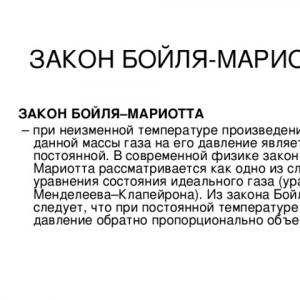The ability for languages \u200b\u200bis called. Why do some people have the ability to learn foreign languages, while others do not? Why do we know our native language
The worries of pregnancy and childbirth are over. After completing the last instruction in the hospital before discharge, the mother and daughter find themselves at home one-on-one with all the questions and everyday problems of caring for a newborn girl. How to solve them in the first month of a baby's life and not be afraid of difficulties? Let's answer the most basic ones.
Daily hygiene
Morning procedures are best done closer to the second feeding, while the daughter is still not hungry, in order to avoid crying. Hungry she will not tolerate them well, demanding food. Morning procedures consist of several stages:
- Washing your face.
- Washing.
- Lubrication.
- Treatment of the umbilical wound.
Face wash
In no case should you splash water on the girl's face. This will cause a negative reaction and fear to the procedure itself. To do this, use a damp soft cloth and warm water.
The eyes are rubbed each with a separate cotton swab from the outer corner to the bridge of the nose.
The auricles are wiped with a damp cloth. Clean the ear canals very carefully with cotton wool on a plastic base, avoiding penetrating deep so as not to damage the thin membrane.
The nasal passages are cleaned with a cotton swab dipped in baby oil. Moving to the other nostril, change it to a new one. If there is a lot of secretions and it is difficult for the baby to breathe, then a small rubber syringe with a soft tip is used to suck them out. To do this, they first release air from it, squeezing it in the hands, then lightly inject it into the nose.
Slowly unclench the hand. The jet of air sucks in all the secretions. The contents are released into a cup of water, rinsing the tip. The same operation is performed with the other nasal passage. In this case, you can use baby drops with sea \u200b\u200bwater - they are sold in pharmacies.
There is no need to wipe the mouth of a healthy girl, since the mucous membrane is very delicate. Occasionally, children develop a white coating on the lips, tongue and gums caused by thrush. You should seek the advice of a doctor who will prescribe the appropriate treatment.
Washing away
In a newborn girl, the external genitals are very delicate and easily injured. Therefore, careless maintenance of this area can cause inflammatory diseases. To avoid this, you should adhere to some rules:
- wash only under a gentle stream of water, and not in a basin;
- direction of movement from front to back, slightly opening the labia majora, in order to avoid the accumulation of feces and urine residues there;
- all movements are smooth and gentle so as not to injure the mucous membrane;
- water within 35–37 ° C, not higher.
Until the baby's umbilical wound is completely healed, use special soft diapers with a cutout for the navel so as not to cause chafing. After changing the diaper, rinse your bottom with water so that residual urine does not irritate delicate skin.
The peculiarities of the structure of the girl's genitals is the close location of the anus and vagina. To prevent contaminated water from getting on the genitals, the child is washed under a gentle stream of water from front to back, gently holding his back down. Not the other way around. Make sure that the jet of water does not injure the delicate body. Do not use soap - wash off with sufficient clean water. In general, frequent use of soap for young children will only hurt. It is enough that you bathe the baby twice a week with baby soap and regularly dress her in clean clothes.
After the water procedure, the skin is dried with a soft cloth on the changing table and the daughter is allowed to lie down for a few minutes without clothes. At this time, the rest of the girl's care activities are carried out, which are necessary after washing.
Lubrication
Baby's skin is especially sensitive to irritation in the first months. You should often lubricate the folds under the knees, in the groin area, armpits, and on the neck with baby oil. If the skin is slightly moisturized, then use talcum-based baby powders.
Umbilical wound treatment
This is one of the most important care procedures. Healing of the umbilical wound in a newborn occurs only by 7-14 days of life. To make it successful, it is necessary to treat it with hydrogen peroxide 2 times a day and lubricate it with cotton swabs dipped in an alcohol solution of brilliant green (brilliant green). The procedure is carried out until complete healing.
If parents notice swelling, redness, or discharge of pus from the wound, they should immediately inform the doctor. Its inflammation is a serious danger and requires immediate treatment.
Caring for a newborn girl is not more difficult than for a boy, but it has its own characteristics due to the different structure of the genitals. The main thing for mom is not to panic in any situation and solve all the problems that arise as she arrives. The specialists of the children's clinic, the patronage nurse, who will visit you every day in the first days, will help with this.
For young moms, caring for a baby may seem daunting, but it's a matter of habit. It will get better and better every day. If a little princess has appeared in the family, then there are several nuances that must be taken into account in carrying out daily hygiene procedures. How to Provide Proper Care for Your Newborn Girl?
What you need to buy before giving birth
When it was announced at the ultrasound that the birth of a girl was expected, it was necessary to prepare a dowry for the baby in advance and purchase everything necessary for care and hygiene procedures. The children's room must be present:
- crib;
- baby changing table;
- a separate wardrobe or chest of drawers for children's things.
In addition to the basic furniture, it is necessary to prepare clothes for the baby, a supply of diapers and a baby first aid kit. Clothes and medicines should be kept in a specially designated drawer of a chest of drawers so that access to them is as convenient as possible. Ideally, you can purchase a chest of drawers with a changing table. A first aid kit and diapers should be put in the top drawer, and the rest should be left under the daughter's clothes. So it will be as convenient as possible to change the child's clothes, carry out the treatment of the navel, etc.
Clothes that are purchased by newborns should be washed in a hypoallergenic powder and carefully ironed. You should also prepare soft towels for the baby. You will need one large bathing towel and one small washing towel. Towels must be washed and ironed before use.
You need to carefully prepare for the appearance of a newborn girl in the house. You will have to buy a lot of things - from hygiene products to furniture
In addition to basic children's medicines (antipyretics, anti-colic remedies, gum gels, etc.), the first-aid kit should also contain aids for hygiene procedures:
- cotton swabs and discs;
- cotton wool;
- high-quality baby cream;
- petroleum jelly (it is better to choose the modern version in liquid form);
- brilliant green ("brilliant green");
- manganese permanganate ("potassium permanganate");
- baby wipes;
- liquid baby soap;
- hydrogen peroxide;
- two thermometers (special mercury for water, electronic or infrared for the body);
- two pipettes with a round end;
- No. 15 for babies;
- several orthodontic pacifiers;
- herbs for (chamomile, string).
Everything that is listed on the list must be bought in advance so that, having arrived with the baby from the hospital, you do not have to worry that something is missing for the full care of the child.
What to look for in the early days
It is necessary to see if the daughter has a white or light beige coating on her lips and genitals. If there is, don't be scared. This is smegma (original lubricant), it is absolutely safe. But in the case when there is a lot of it, this can provoke the reproduction of harmful microorganisms, which entails an inflammatory process.
If the plaque is almost invisible and there is little of it, then no special care is needed. It will be absorbed into the skin by itself. In the case when there is a lot of smegma, you should very carefully remove it with a cotton pad dipped in clean boiled water. The plaque is quite dense in structure. It is unlikely that it will be possible to remove it the first time, so the procedure can be repeated for several days in a row.

Thanks to the frequent feeding "on demand", the children's gastrointestinal tract is quickly populated with beneficial bacteria that promote proper digestion. This is the main prevention of colic
Also, in the first days of life, you need to pay great attention to feeding the child - the main element of care, without which the child simply cannot survive. It is necessary to apply the baby to the breast as often as possible, so that the mother has a stable lactation, and the newborn girl gets used to the new way of eating.
Hygiene features of newborn girls
Unlike boys, who can be washed as desired, girls are more likely to have genitourinary infections caused by bacteria and microorganisms that multiply in the genital area. That is why several rules must be followed when washing away:
- You need to wash your baby every time you change the diaper.
- Washing should take place in the direction from the genitals to the anus. This is very important, since with this method, the chances of introducing an infection into the genitourinary system are significantly reduced.
- The use of baby wipes is permissible only to remove feces from the perineal area. Then you still need to wash the baby.
- You only need to wash the girl under running water; you cannot do this in a basin. When washing in a basin or bath, there is a risk of feces and bacteria entering the vagina. It also threatens inflammation.
- Do not overuse soap, it is better to do without it. Excessive striving for perfect cleanliness of the perineum can lead to partial or complete fusion of the labia minora, which occurs due to a violation of the integrity of the mucous membranes. This will need to be corrected surgically.
- The towel that is used for washing and bathing should be separate for the baby, washed and ironed.
- Do not wipe the labia from the inside with anything (wet wipes, cotton pads, towel). It also leads to infection and damage to the integrity of the mucous membranes.
If a newborn girl suddenly has mucous or bloody discharge from the vagina, then this is normal. The discharge will disappear when the baby's hormonal background returns to normal. Most often it lasts several days and does not require treatment.
But if purulent discharge with a pungent odor is observed and the genitals have acquired an inflamed appearance, then this phenomenon already requires immediate medical intervention. It should also be taken into account that in infancy, girls cannot have any secretions, except for hormonal ones, which were discussed above. For such phenomena of any kind, a doctor's consultation is required.
Bathing
For bathing, you need to purchase a separate soft washcloth or sponge and bath accessories in advance. You can't use mom's or dad's towel, especially the one that adults have already used. Bathing the baby should take place daily, except when it is not recommended by pediatricians, for example, for various dermatitis. After bathing, it is good to give your baby a light massage with baby oil or cream.

Various foams, soaps, shampoos and other hygiene products should be used no more than once a week. Herbal decoctions can be used every day
Care for nails, ears, nose, breast and umbilical wound
Nails
Small babies are often born with long nails. There is no way to trim them in the hospital, so this procedure must be carried out immediately upon arrival home. A child's nails should always be trimmed, otherwise they may scratch their face and body. For this procedure, it is better to purchase special manicure scissors with sharp blades and rounded ends in advance. Scissors and fingers must be treated with hydrogen peroxide before cutting.

It is better not to cut the nails too short - there is a chance to injure the finger. Therefore, it is better for a little princess to do manicure and pedicure more often.
Navel
Umbilical wound care consists of two fundamental points:
- Constant air access to the wound.
- Daily treatment with peroxide and brilliant green.
Air access is provided by loose clothing or loose swaddling, as well as the use of special diapers for newborns with a recess under the navel.
The wound is processed according to the following scheme:
- You need to wash your hands, put the girl on the changing table, undress, remove the diaper.
- First, drop a couple of drops of hydrogen peroxide from a clean pipette into the baby's navel.
- Then, from another pipette, you need to drop a drop of brilliant green on the wound.
- Next, you need to wait until the brilliant green dries up and you can dress the baby.
- You should not touch the wound with your fingers or cotton swabs - you can get an infection.
The procedure is repeated every day until the wound is completely healed. Healing usually takes 2-2.5 weeks.

Modern pediatricians do not advise bathing a child until the umbilical wound is completely healed. But if there is a great desire, then the bathing water should be boiled, cooled to the desired temperature (34-36 °), only then the baby should be immersed there
Ears
The girl should clean her ears as needed. This is when the earwax has left the ear canal into the concha. Only what is visible should be removed. You should not go far into the ear using cotton swabs. Sulfur is not dirt, but hearing protection against dust and infections.
The ears of newborns are cleaned with cotton flagella, not sticks. Chopsticks can damage your ear. If the child twitches accidentally, it will go too deep. A separate flagellum must be twisted for each ear. If water gets into your ears while swimming, this is not a reason for panic. You just need to blot it with a towel and, if necessary, use a cotton swab, which will perfectly absorb water.

If diaper rash or crusts have formed behind the child's ears, then they are lubricated with baby cream or oil. With this care, diaper rash will quickly pass, and the crusts will be easy to remove.
Nose
Nasal care consists of observing and removing snot and crusts. The child should be able to breathe freely. To prevent the snot from drying out, it is necessary to maintain optimal humidity in the room - 50-70%. You can also soften the crusts with boiled vegetable oil. It is applied to cotton filaments and carefully, with screwing movements, rub the nostrils from the inside. The accumulation of nozzles can be removed in the same way.

When caring for newborns, it is best not to use aspirators and various nasal sprays. According to experts, this leads to the formation of adenoids and a violation of the integrity of the mucous membranes. You should not be zealous and overly concerned about the cleanliness of the nasal passages. Everything needs to be done strictly as needed
Mammary gland
About a week after birth, a girl may experience breast engorgement. This is harmless and is due to the hormonal "crisis" of newborns. You don't need to do anything special. Everything will go away by itself. In the event that the baby's breasts turn red and the enlargement of the glands is pronounced, it is worth consulting with the local pediatrician.
Some mothers in such situations begin to massage their breasts or try to squeeze out the contents. This is wrong and dangerous.
Caring for a baby is difficult and unusual only at the very beginning. Over time, everything will become simple and easy. The joy of motherhood is well worth the effort!
Mikhail teaches English at a Moscow university, he wrote a letter criticizing our course. We decided to take into account his wishes and are already finalizing the materials. In the meantime, on the occasion, they asked him about the development of abilities for languages.
What, in your opinion, is necessary, first of all, to master the language?
We know our native language not so much because we have been learning it since childhood, but due to the fact that we scroll through words and sentences a thousand times in our head a day, that is, we think. This daily practice is the cornerstone of learning any language.
Previously, English was taught in schools and higher educational institutions, but there was no real need to study it, since trade and economic ties did not develop. Fortunately, today the situation is different. Globalization is doing its job, and English is relevant to all segments of the population. The development of the worldwide network and the ability to immerse yourself in the language environment creates excellent conditions for daily practice.
What is the fundamental difference between adults and children who learn a language?
A child perceives everything easier than an adult. He quickly immerses himself in the linguistic environment and immediately tries to repeat without burdening himself with intellectual comprehension of grammar. Children build rules from what they already have.
Adults act according to a clear algorithm, which often leaves no room for improvisation. In principle, the capabilities of each person are individual, but adults certainly have a lot to learn from children.
What difficulties can a neophyte face when learning English?
Any European language begins with comprehending the basics of grammar, which is essentially a linguistic skeleton, on which vocabulary is built up, like muscles. From this point of view, English is pretty simple.
English is an analytical language, there are no personal endings, but the system of tenses is very developed.
For many, it is difficult to learn prepositions that are presented in great abundance and have meaning-forming functions.
Many students give up their language because of alleged complex system times. But this is the alphabet of the language, which is worth focusing on, in the future, the study will go easily.
This is more of a "excuse" than a real state of affairs. It doesn't matter how developed your working memory or imagination is. If a person does not suffer from brain injuries and is not sick, then it is in his power to learn the language, using the correct method, in about a year. Need to change psychological attitude and things will get better.
Give advice to those involved self-study in English
Try to devote at least 30 minutes a day to classes! Practice total immersion in language learning, divide words into topics - cutlery, clothes, interior, stick stickers with foreign words around the house. Constantly say everything that you see around you. Get to know with. Dare, discover new facets of your intellect, expand the boundaries of consciousness and you will succeed!
OUR STUDENTS
Foreign languages \u200b\u200bremotely
How to quickly learn a foreign language
What is the best way to learn a foreign language?
Foreign languages \u200b\u200bindividually
About the ability to a foreign language
The question of what abilities are and how they can be revealed has been repeatedly raised before psychologists. Can you imagine how good it would be if at the entrance exams to a language university or even to a special school with a language bias it was possible to initially select people with the necessary data?
It is a fact that no one anywhere and ever analyzes the ability of either a foreign language, or, for example, mathematics, or geography, or medicine ... When entering any educational institution only the level of preparedness for a certain number of subjects is checked. The exception is the so-called creative specialties, in which, in the absence of certain qualities, vocational training is simply useless. But even there there are certain difficulties in identifying them: that is why we know a lot of talented actors loved by all of us, who managed to enter a professional educational institution far from their first attempt!
In psychology, all human abilities are divided into general and special. Specialties include, for example, the ability to music or dance. The overwhelming majority of the rest are common.
What type of abilities are abilities for a foreign language - general, or is it special? Most likely, these abilities combine both. Moreover, here again a division into the ability to languages \u200b\u200band to freely communicate in them is necessary. According to statistics, approximately 6% of the total population has the ability to “speak a foreign language”. But the paradox is that at least each of us speaks our native language! What then happens to 94% of people when they start teaching a foreign language?
The fact is that everyone has the ability to communicate freely, in contrast to the ability to language.
Language is a system of signs and knowledge about them, speech is a way of communication. Only a person possesses speech and speech intelligence, while the presence of "language" as a general sign system for transmitting information is noted in any social animal, from bees to elephants.
Therefore, it is obvious that any person is potentially capable of mastering any speech - Russian, foreign, Chinese. At the same time, the language, even the native one, is not within the power of everyone, and thus 6% of “inborn linguists”. Who doubts, try to answer uSE questions: You will see for yourself that there are significant gaps in your native language skills!
Free communication can be given to someone faster, to someone longer, but everyone is capable of this. By the way, many people think that languages \u200b\u200bare easier for people with a developed ear for music. If we are not talking about multi-tone, such as Chinese, for example, then this statement is incorrect. Musical and phonemic hearing are based in different hemispheres of the brain! Why, then, are musically gifted people often more capable of languages? And to the math, let's add. Because music is one of the most effective tools for developing the brain in general. By the way, this is why CLP courses use special background music: to activate your brain at certain frequencies.
Now there are many methods that promise to teach a foreign language in the same way as in childhood native. But is this possible in principle?
It is 100% impossible for anyone and anywhere for one simple reason. Mastering the native language, or rather, free communication in it, occurs at the age of 3 years. Native speech refers to early skills that must be mastered strictly in due time, or they will not be mastered at all: these are the laws of the brain that no one can deceive.
But if the native speech was mastered in a timely manner, then certain areas and mechanisms of the brain that were responsible for the acquisition of native speech did not disappear anywhere. They can be woken up and asked to work, in accordance with the already established individual characteristics an adult. Then you can learn to communicate freely in a foreign language at any age! The CLP method succeeded in doing this.
Ability for a foreign language and how to develop it?
The fact is that not every teacher knows an intelligible answer to the question of linguistic abilities for a foreign language, let alone students. From this ignorance, the content side of training suffers, and as a result, its result. Therefore, both the teacher and the one who is going to study a foreign language should be aware of what qualities should be developed and what to rely on. An objective picture, reflecting the strengths and weaknesses of a particular student, can significantly increase the effectiveness of training.
All human abilities are conventionally divided into general and special. The general ones include universal, broad-spectrum actions associated with memory and intelligence. Special qualities, as the name suggests, include more narrowly focused qualities. In practice, general and special abilities are often inextricably linked. For example, in order to paint a picture, one should have not only the ability to draw and a sense of color, but also developed logic, spatial and imaginative thinking, that is, certain general abilities.
Ability to foreign language also consists of general and special. Among the general ones, it is worth highlighting memory, as well as analytical and synthetic functions of intelligence. The special ones include, first of all, phonemic hearing and imitative abilities.
Phonemic hearing is the ability to hear, sensitively distinguish between phonemes (sounds) of a foreign language. Phonemic is not identical to the ear for music and is even located in the other hemisphere of the brain. Therefore, the fact that people with musical abilities are often better at mastering a foreign language is not at all related to ear for music. This is influenced by the general intelligence abilities developed by musical education. In addition, ear for music can affect the ability to hear and correctly reproduce speech intonation. One and the same person can have both types of hearing well. But remember: the development of ear for music in itself does not in any way affect the phonemic. There are many more people who hear music well and very poorly perceive foreign speech by ear than those who are equally gifted phonetically and musically. Phonemic hearing is sharply aggravated in infancy. It is he who is the basis on which the perception of the native language is built. Therefore, without a solid foundation in the form of a developed phonemic hearing, there can be no question of any quality teaching.
Imitative ability is what determines your ability to imitate another person. The mechanism of imitation is included in us from the first months of life and underlies the development of most life skills. Learning native speech in this way, we imitate the facial expressions, intonation, rhythm, and pronunciation of the speaker. If, while learning a foreign language, you likewise do not learn to imitate the speech of a native speaker, then your learning is like swimming in a pool with no water in it!
Phonemic hearing and imitation abilities are inherent from birth to any person. To a greater or lesser extent, they persist throughout life, sometimes remaining dormant.
The importance of general abilities in the context of a foreign language is quite obvious. Memory allows us to remember new information in the form of words and grammar rules. Analytic skills give an understanding of the structure of a foreign, synthetic - the ability to creatively operate with this structure, to formulate your thoughts using language. Therefore, these abilities are usually called "verbal". It turns out that phonemic hearing and imitative abilities are primarily associated with basic mechanisms, with oral speechwhich in natural conditions develops in our country first. Verbal abilities are included in the next step. They are already associated with written speech (reading and writing) and the language itself. The fundamental difference between language and speech is possible.
Speaking about the ability to learn a foreign language, it is necessary to mention one more widespread, but difficult to formulate concept: "the sense of language." It can be defined as the ability to feel the inner harmony inherent in any language, and at the same time to distinguish between falsehood and artificiality. This is linguistic intuition, internal ideas about language. There is also a scientific definition for the sense of language - innate linguistic competence (this definition was given by the famous psycholinguist N. Chomsky). Pay attention to the word "congenital". This means that it is also given to man by nature. Therefore, the inclusion of others natural mechanisms the development of speech - phonemic hearing and imitation abilities - also triggers a sense of language. At the same time, the study of a foreign language only relying on verbal abilities and logic, this feeling is most likely hampered.
Unlike special abilities, which were discussed above, the development of verbal actively involves
involved in all traditional forms of language teaching. But not all methods pay due attention to phonemic hearing, imitative abilities and a sense of language. The CLP method purposefully develops them as the foundation of all further learning.
Find out your ability in foreign languages
At the Center for Language Psychology you have a unique opportunity get free diagnostics of their abilities and recommendation regarding their development.
This will help you get to know yourself better, learn to use the psychological potential of your abilities and enjoy the process of learning a foreign language.
Regardless of the method and place of study you choose, you will be able to more effective use your ability to a foreign language, time and material resources. So, faster and easier to achieve results.
How to start learning
Select a program using the program descriptions on the website.
Get tested to prepare the program:.
Discuss with a specialist all the questions you are interested in creating your personal course.
We will send you a link for payment, and after receiving it, we will start preparing the program. Within 5 days your program will be ready, and you will receive a link to download it.
If you have any questions, please contact: [email protected], Nina Bryantseva, linguistic psychologist at the Center for Language Psychology (CLP).







